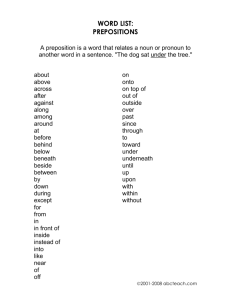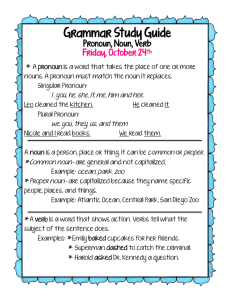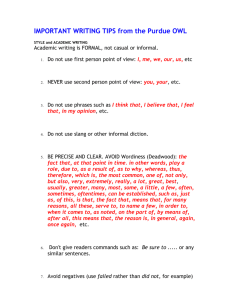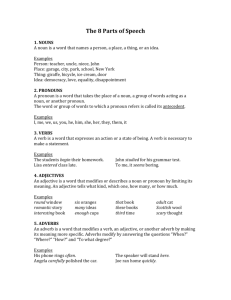Jabberwocky poem - Brown's Camel English
advertisement
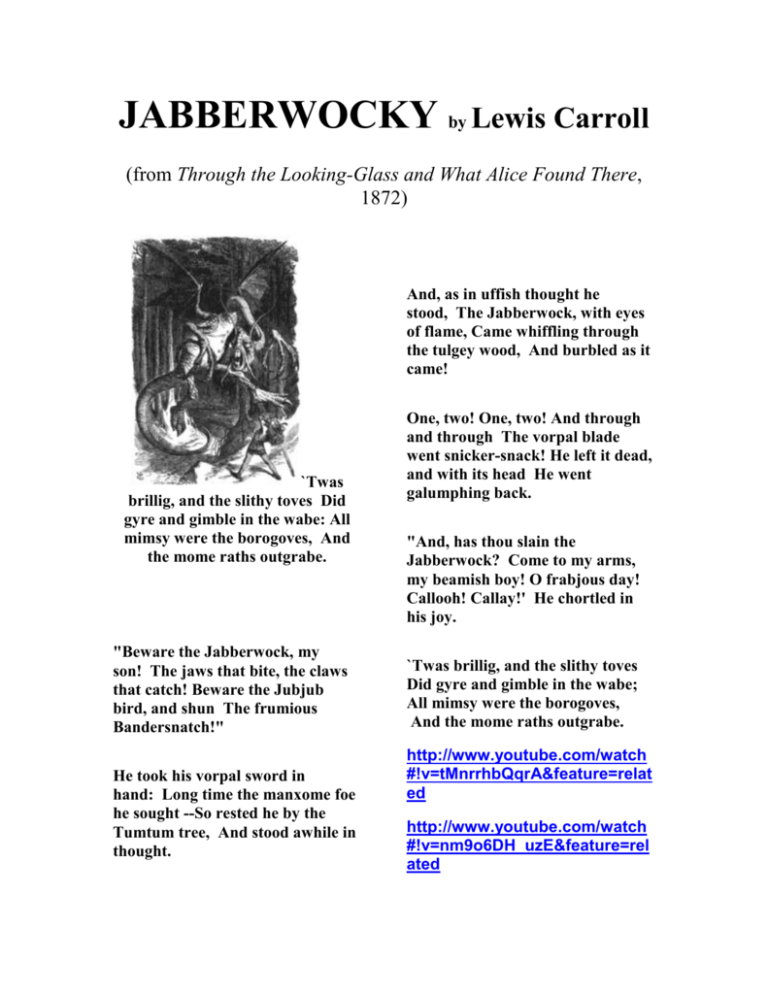
JABBERWOCKY by Lewis Carroll (from Through the Looking-Glass and What Alice Found There, 1872) And, as in uffish thought he stood, The Jabberwock, with eyes of flame, Came whiffling through the tulgey wood, And burbled as it came! `Twas brillig, and the slithy toves Did gyre and gimble in the wabe: All mimsy were the borogoves, And the mome raths outgrabe. "Beware the Jabberwock, my son! The jaws that bite, the claws that catch! Beware the Jubjub bird, and shun The frumious Bandersnatch!" He took his vorpal sword in hand: Long time the manxome foe he sought --So rested he by the Tumtum tree, And stood awhile in thought. One, two! One, two! And through and through The vorpal blade went snicker-snack! He left it dead, and with its head He went galumphing back. "And, has thou slain the Jabberwock? Come to my arms, my beamish boy! O frabjous day! Callooh! Callay!' He chortled in his joy. `Twas brillig, and the slithy toves Did gyre and gimble in the wabe; All mimsy were the borogoves, And the mome raths outgrabe. http://www.youtube.com/watch #!v=tMnrrhbQqrA&feature=relat ed http://www.youtube.com/watch #!v=nm9o6DH_uzE&feature=rel ated Review of Parts of Speech Article · the, a , or an Noun · a word that names something, such as a person, place, thing, quality, or idea Common Noun · a word that names just any member of a group or class man, city, school, relative Proper Noun · a word that refers to a particular individual in a group or class Albert Lawson, Toledo, Central Cambria High School, Aunt Theresa Hint: Noun = Name The word that answers the question "What?" after an article is a noun. Pronoun · a word that substitutes for a noun Personal Pronouns · substitute for definite persons or things I, you, he, she, it, we, they Demonstrative Pronouns · substitute for things being pointed out this, that, these, those Indefinite Pronouns · substitute for unknown or unspecified things each, either, neither, one, anyone, somebody, everything, all, few, many, and so on. Possessive Pronouns · substitute for things that are possessed mine, yours, his, hers, its, ours, theirs Intensive Pronoun · used to add emphasis You yourself made the decision. Reflexive Pronoun · names the receiver of an action when the doer is the same as the receiver; renames the doer The boy fell and hurt himself. Verb · a word that expresses action, existence, or occurrence by combining with a subject to make a statement, to ask a question, or to give a command Let's paint the car. Hint: Any word that will function in this position to complete the command is a verb. Only works with the present form of the verb. Let's painted the car would not work. Let's ____________. (action word) Adjective · a word that describes or limits a noun The small child left. The child is small. Mary looked unhappy. The hostess, calm and serene, entered the hall. Adverb · a word that modifies anything except a noun or a pronoun Manner: John performed well. Time: I must leave now. Frequency: We often go on picnics. Place: There he sat, alone and quiet. Direction: The police officer turned away. Degree: I could barely hear the speaker. Hint: Answers the questions: How? When? Where? Part of Speech Abbreviation Article ART Common Noun CMN Proper Noun PRN Personal Pronoun PEN Demonstrative Pronoun DMN Indefinite Pronoun INTN Possessive Pronoun PSN Intensive Pronoun INDN Reflexive Pronoun RFN Verb VRB Adjective ADJ Adverb ADV
